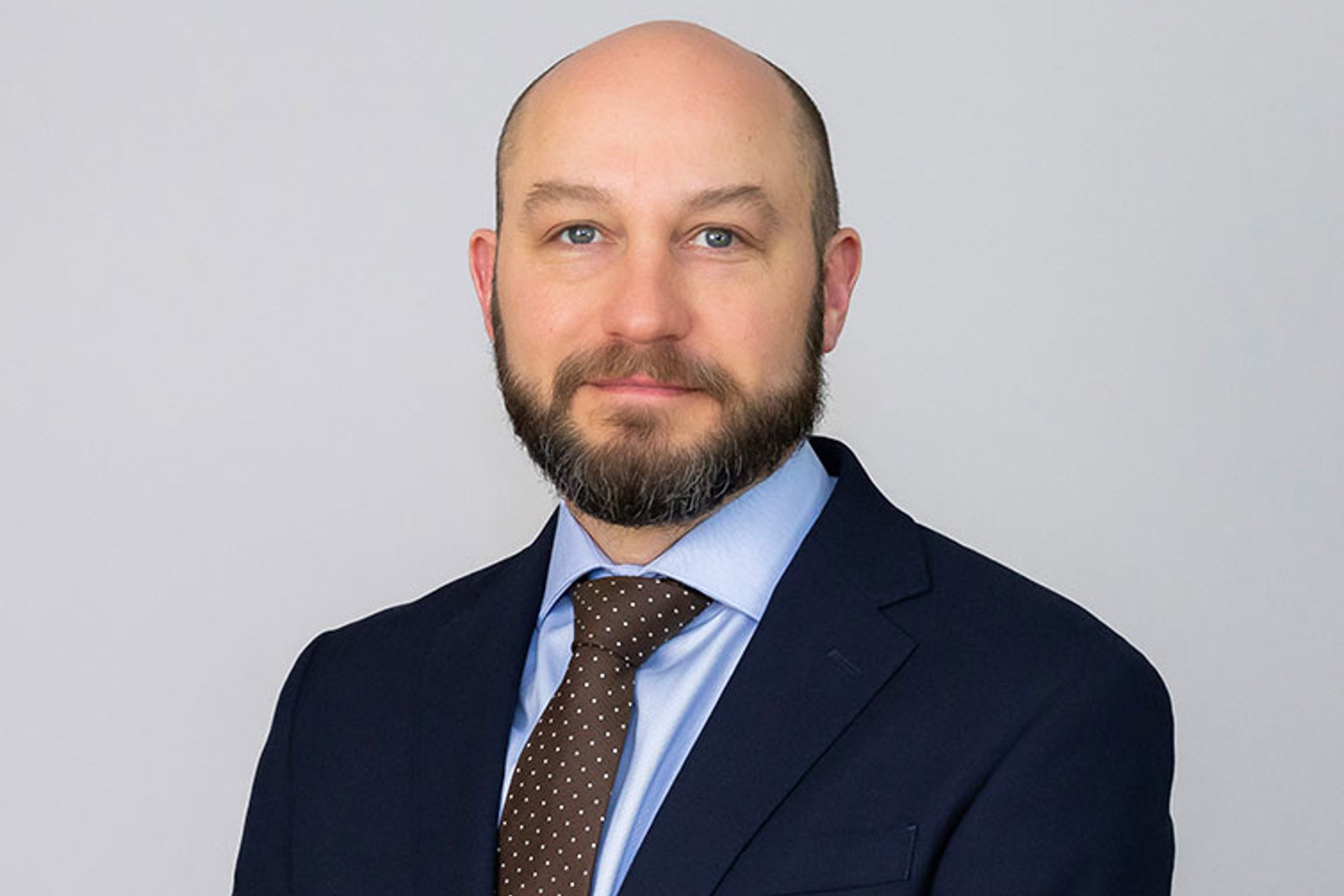
Bryon Rees
Partner | Legal
Guernsey

Bryon Rees
Partner
Guernsey
Big things are happening at Ogier. Change is embedded in everything we do. It is redefining our talent, our ways of working, our platforms of delivery, our culture.
Services
We have the expertise to handle the most demanding transactions. Our commercial understanding and experience of working with leading financial institutions, professional advisers and regulatory bodies means we add real value to clients’ businesses.
Sectors
Our sector approach relies on smart collaboration between teams who have a deep understanding of related businesses and industry dynamics. The specific combination of our highly informed experts helps our clients to see around corners.
We have the expertise to handle the most demanding transactions. Our commercial understanding and experience of working with leading financial institutions, professional advisers and regulatory bodies means we add real value to clients’ businesses.
Legal
Corporate and Fiduciary
Consulting
Banking and Finance
Corporate
Dispute Resolution
Employment law
Intellectual Property
Investment Funds
Listing Services
Local Legal Services
Private Wealth
Property law
Regulatory
Relocation Services
Restructuring and Insolvency
Tax
Banking and Finance overview
Asset Finance
CAYLUX Fund Finance
Debt Capital Markets
Derivatives
Fund Finance
Islamic Finance
Leveraged Finance
Listing services
Real Estate Finance
Regulatory
Restructuring and Insolvency
Structured Finance
Sustainable Finance
Corporate overview
Economic Substance
EIIS Services in Ireland
Equity Capital Markets
Insurance and Reinsurance
Listing services
Mergers and Acquisitions
Private Equity
Real Estate Structuring, Acquisitions and Disposals
Regulatory
Technology and Web3
Dispute Resolution overview
Banking Disputes
Corporate and Financial Services Disputes
Crypto Disputes
Enforcement of Judgments and Awards
Fraud and Asset Tracing
Funds Disputes
Insurance Disputes
International Arbitration
Regulatory
Restructuring and Insolvency
Section 238 Shareholder Appraisal Rights
Shareholder and Valuation Disputes
Trusts Disputes and Applications
Investment Funds overview
Hedge Funds
Managers and Sponsors
Private Equity
Real Estate, Infrastructure and Energy Funds
Regulatory
Sustainable Investing and Impact Funds
Technology and Web3
Local Legal Services overview
Cayman Local Legal Services
Channel Islands Local Legal Services
Employment law
Estate Planning, Wills and Probate
Expat services
Family Office
Intellectual Property
Ireland Local Legal Services
Make your Guernsey will online
Make your Jersey lasting power of attorney online
Make your Jersey will online
Notary public services
Property law
Relocation Services
Private Wealth overview
Employee incentives and pensions
Estate Planning, Wills and Probate
Family Office
Make a Jersey lasting power of attorney online
Make your Guernsey will online
Make your Jersey will online
Private Wealth and ESG
Private Wealth and Jersey Private Funds
Relocation Services
Trust Advisory Group
Accounting and Financial Reporting Services - Ogier Global
Cayman Islands AML/CFT training - Ogier Global
Corporate Services - Ogier Global
Debt Capital Markets - Ogier Global
Fund Services - Ogier Global
Governance Services - Ogier Global
Investor Services - Ogier Global
Ogier Connect - Ogier Global
Private Wealth Services - Ogier Global
Real Estate Services - Ogier Global
Regulatory and Compliance Services - Ogier Global
Our sector approach relies on smart collaboration between teams who have a deep understanding of related businesses and industry dynamics. The specific combination of our highly informed experts helps our clients to see around corners.
Ogier provides practical advice on BVI, Cayman Islands, Guernsey, Irish, Jersey and Luxembourg law through our global network of offices across the Asian, Caribbean and European timezones. Ogier is the only firm to advise on this unique combination of laws.
Keep up to date with industry insights, analysis and reviews. Find out about the work of our expert teams and subscribe to receive our newsletters straight to your inbox.
Fresh thinking, sharper opinion.
We get straight to the point, managing complexity to get to the essentials. Our global network of offices covers every time zone.
No Content Set
Exception:
Website.Models.ViewModels.Components.General.Banners.BannerComponentVm
Insight
05 September 2016
Guernsey
4 min read
ON THIS PAGE
RELATED
Under the Companies Law winding up of a Company may be voluntary or compulsory. This memorandum has been prepared for the assistance of our clients in connection with the provisions relevant to voluntary winding up of Guernsey incorporated companies under the Companies (Guernsey) Law, 2008 (as amended) (the Companies Law). It is intended to provide only a summary of the main legal and general principles and it is not intended to be comprehensive in scope. It is strongly recommended that you seek specific legal advice on such matters and we would be pleased to assist in this respect. A series of briefings on other specific aspects of Guernsey companies has been produced by Ogier and is available on our website www.ogier.com.
The memorandum has been prepared on the basis of the law and practice in Guernsey as at the date of publication.
The Companies Law contains provisions for winding up Guernsey incorporated companies, including limited liability companies, companies limited by guarantee, protected cell companies (PCCs), incorporated cell companies (ICCs), incorporated cells of ICCs (ICells), unlimited liability companies and mixed liability companies (Companies or Company as the context requires).
Winding up is the process by which the affairs of the Company are brought to an end, its assets realised, its liabilities determined and any available funds distributed to those legally entitled to them.
A Company may be wound up voluntarily:
A copy of every resolution (ordinary or special) that a Company be voluntarily wound up must be delivered by the Company to the Registrar of Companies (the Registrar) and if the Company is a supervised company (e.g. a Guernsey licensee of a Guernsey regulated fund), to the Guernsey Financial Services Commission, within 30 days of it being passed. The Registrar shall give notice of the fact that the Company has passed such resolution in such manner and for such period as he thinks fit.
A voluntary winding up commences upon the passing of the resolution for voluntary winding up.
Once a voluntary winding up has commenced the Company shall cease to carry on business except as far as may be expedient for the beneficial winding up of the Company. In a voluntary winding up, the Company shall by ordinary resolution (i) appoint a liquidator to wind up its affairs and to realise and distribute its assets; and (ii) fix his remuneration. Upon the appointment of the liquidator the powers of the directors cease unless the liquidator or the Company in general meeting sanctions their continuance. Having realised the Company’s assets and discharged its debt, the liquidator will distribute any surplus amongst the members according to their respective entitlements.
If for any reason no liquidator is appointed as set out above, an application may be made by any member or creditor for a liquidator to be appointed by the Royal Court.
The Companies Law contains provisions requiring the filing of accounts by the liquidator at general meetings on the expiration of each year after the commencement of the voluntary winding up and the holding of a final meeting to approve the liquidator's final accounts prior to the dissolution of the Company. Notice of the holding of the final meeting must be lodged at the Companies Registry, and the Company is deemed to be dissolved three months after the date that the liquidator gives notice to the Registrar that the final meeting has been held and the date on which it was held.
Under the Companies Law, the Company may, by special resolution, delegate certain powers to its creditors, or a committee thereof, relating to the winding up subject to certain rights of appeal. A member of the Company which is being voluntarily wound up may apply to the Royal Court for directions in respect of any aspect of the winding up and upon such order the Royal Court can make such order as it deems fit.
All costs charges and expenses properly incurred in the voluntary winding up of the Company, including the remuneration of the liquidator, are payable from the Company’s assets in priority of all other claims.
The Royal Court may, notwithstanding the passing of a resolution for the voluntary winding up of a Company, entertain an application for the compulsory winding up by the Company, by any director, member or creditor thereof or by any other interested party.
For further information in relation to the compulsory winding up of companies, please refer to our client briefing entitled “Guernsey Companies Law: Compulsory Winding up of Companies". In addition to voluntary and compulsory winding up of Companies, the Companies Law also provides for administration orders in relation to Companies and protected cells of PCCS (PCells) and receivership orders in respect of PCells. It is not possible either to voluntarily or compulsory wind up one or more ICells except in the course of the winding up of the whole of the ICC of which they form part.
PCCs are subject to modified liquidation procedures (compared to other types of Company).
Broadly this means that, notwithstanding any statutory provision or rule of law to the contrary, in the liquidation of a PCC the liquidator:
There are also a number of special provisions in relation to the assets and liabilities of the PCells and PCC and the manner in which these are to be dealt with (please see the Ogier client briefing entitled “Guernsey Companies Law: Protected Cell Companies and Incorporated Cell Companies".

Bryon Rees
Partner | Legal
Guernsey

Bryon Rees
Partner
Guernsey
Contact Bryon
Back

Christopher Jones
Partner | Legal
Guernsey

Christopher Jones
Partner
Guernsey
Contact Christopher
Back

Tim Clipstone
Partner | Legal
British Virgin Islands, Guernsey

Tim Clipstone
Partner
British Virgin Islands, Guernsey
Contact Tim
Back

Michelle Watson Bunn
Managing Associate | Legal
Guernsey

Michelle Watson Bunn
Managing Associate
Guernsey
Contact Michelle
Back

Richard Sharp
Partner | Legal
Guernsey

Richard Sharp
Partner
Guernsey
Contact Richard
Back
Ogier is a professional services firm with the knowledge and expertise to handle the most demanding and complex transactions and provide expert, efficient and cost-effective services to all our clients. We regularly win awards for the quality of our client service, our work and our people.
This client briefing has been prepared for clients and professional associates of Ogier. The information and expressions of opinion which it contains are not intended to be a comprehensive study or to provide legal advice and should not be treated as a substitute for specific advice concerning individual situations.
Regulatory information can be found under Legal Notice
Sign up to receive updates and newsletters from us.
Sign up
No Content Set
Exception:
Website.Models.ViewModels.Blocks.SiteBlocks.CookiePolicySiteBlockVm
